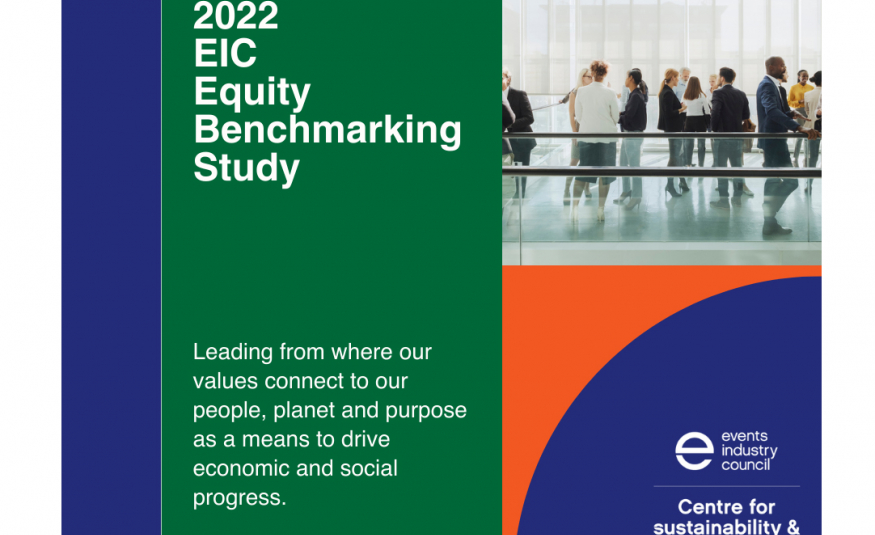The Events Industry Council (EIC) in partnership with its global EIC Equity Task Force, has released the results of its 2022 Equity Benchmarking Study, the first phase of the Council’s Equity Acceleration Plan. Survey findings reveal widespread DEI dissatisfaction among event professionals, minority groups, and women.
The EIC appointed its Equity Task Force in 2020 to address what it sees as systemic racism and discrimination in the business events and hospitality industry. While there is an ever-growing awareness and commitment toward equity, survey scores indicate DEI efforts are largely in principal but not in practice. EIC believes organisations need to advance their DEI structures, policies, and initiatives to deliver measurable change.
“It’s crucial that we champion inclusivity in our sector as a means to drive economic and social progress,” said Amy Calvert, Events Industry Council CEO. “DEI needs to be embraced by organisational leadership to be effective. Results from our 2022 Equity Benchmarking Study underscore we have a significant way to go, particularly advancing ethnic diversity, gender inclusivity, and equity in leadership and influential positions. EIC’s Equity Acceleration Plan will enable us to measure progress as well as improve our ability to deliver impact and sustain change.”
The Equity Benchmarking Study included a series of EIC leadership focus group discussions and an AI-based chatbot survey of 1,404 event professionals across the industry. The current DEI experience in the events industry was measured across four dimensions: Ownership, Accountability and Power of Influence, Delivering Change, and Sustaining Change. The global survey was conducted by Tharoor Associates and Culturelytics from September 2021 to January 2022. It found:
- Employed event professionals (83% of all survey respondents) are significantly more dissatisfied with DEI in the industry than those who are self-employed or have alternative employment types.
- 61% of all surveyed event professionals identified as White and are predominant across all job grades. Fifteen percent of senior management identified as Black. (According to the latest US Census, 13.6% of the country’s population is Black).
- Respondents who identify as Black rated their DEI experience 11% lower across all four dimensions than respondents who identified as White.
- More than 75% of respondents identified as female, and they are well represented in managerial and senior roles. Six out of 10 (61%) female respondents are in senior management and board job grades, yet they rated their DEI experience significantly lower than male respondents (21%).
“Dismal Black and Brown representation within the events industry presents barriers to diversity and inclusion in leadership and influential positions needed to impact change,” said Jason Dunn, Sr., EIC Equity Task Force co-chair and past chairman of the National Coalition of Black Meeting Professionals. “Dispersed power and greater ownership of roles at all levels is rooted in an authentic DEI strategy, which in turn strengthens our industry’s infrastructure and positions us to compete on a global scale…Our task force is committed to addressing these survey findings with actionable and measurable solutions.”
The benchmarking study is Phase One of EIC’s Equity Acceleration Plan. Phase Two includes a leadership workshop to review the study and shape resources and deliverables.
Cathy Breden, EIC Board chair and International Association of Exhibitions and Events Executive vice-president and CEO said the project established “benchmarks to measure progress and establish and develop tools and resources for the global business events industry”.
View the full 2022 Equity Benchmarking Study and Key Insights/Recommendations, here: https://www.eventscouncil.org/Sustainability/Equity-Acceleration-Plan.





